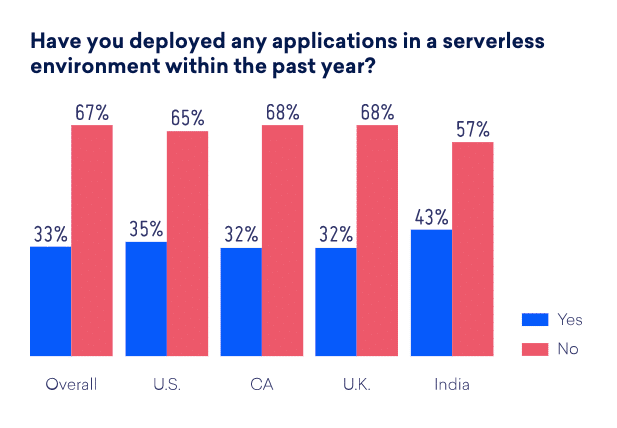Serverless computing has reached an interesting phase of development. Developers have started seeing the value of serverless architecture and how beneficial it is, which could a sole potentiate for a whole new startup game.
ALSO READ: Vodafone Trials World’s First 4G IoT Drone Tracking And Safety Technology!
What Is Serverless Computing?
Firstly, serverless doesn’t mean serverless at all, but it does enable a developer to set instructions that trigger and leave the infrastructure requirements completely to the cloud provider. The provider on the end will deliver exactly the right amount of requirements without the developer coming into the scene.

Not to forget, every technology has its ups and downs. The ups always push the project forward but the downs open a whole set of problems in front of the developers. In the coming years, companies building security, tooling, libraries, APIs, monitoring and a whole host of tools will likely require an evolved serverless computing architecture.
Before Serverless Computing
Physical servers were the one that every other developer relied on, but there was lots of wasted capacity, in turn costing more than what is required. This led to the development of virtual machines, which enabled IT to take a single physical server and divide it into multiple virtual ones. Well, VMware is one such successfully launched company on this, which without a doubt paved the way for cloud computing.

Then came Containers, which took the development of Docker and Kubernetes, two open source platforms. Containers enabled the developers to break down a large program into discrete pieces, which help it run more efficiently. Whereas the whole idea of serverless computing is being abstracted away.
ALSO READ: What Are Lite Apps? What’s The Difference Between Native And Lite Apps; What And Why!
Today, all the major vendors have launched serverless products with Google Cloud Functions and Microsoft Azure Functions all offering a similar approach. It is worthy to note that, we are not there yet, and a lot of work still needs to be put up for serverless to really take a hold.
Advantages And Some Surveys
According to Tim Wagner, General Manager of AWS Lambda says the primary advantage of implementing serverless computing is that it allows developers to strip away the challenges associated with managing servers, which means there is no provisioning, deployment, patching or monitoring all those details at the server and operating system level go away.

According to a survey, cloud computing company Digital Ocean, out of 4800 IT pros, 55 percent identified themselves as developers and nearly half of the developers didn’t fully understand about the serverless computing concept.
ALSO READ: Gmail App Developers Have Been Keeping An Eye On Your Emails [Update]
Digital Ocean also found that AWS was by far the most popular service with 58 percent of respondents reporting Lambda was their chosen tool, followed by Google Cloud Functions with 23 percent and Microsoft Azure Functions further back at 10 percent.
Down The Line
Although abstraction simplifies operations on one level, but it creates a new set of requirements (some expected, some unexpected), which could essentially stop the development process reason being the lack of tooling.

Well personally, I think we are at the initial stage of serverless computing. We still need to find out ways to take advantage of serverless computing in solving a problem and also help developers to gain momentum towards the serverless future. What do you think about it? Let us know in the comment section below.
BONUS VIDEO
For the latest tech news, follow TechDipper on Twitter, Facebook, Google+, Instagram and subscribe to our YouTube channel.



